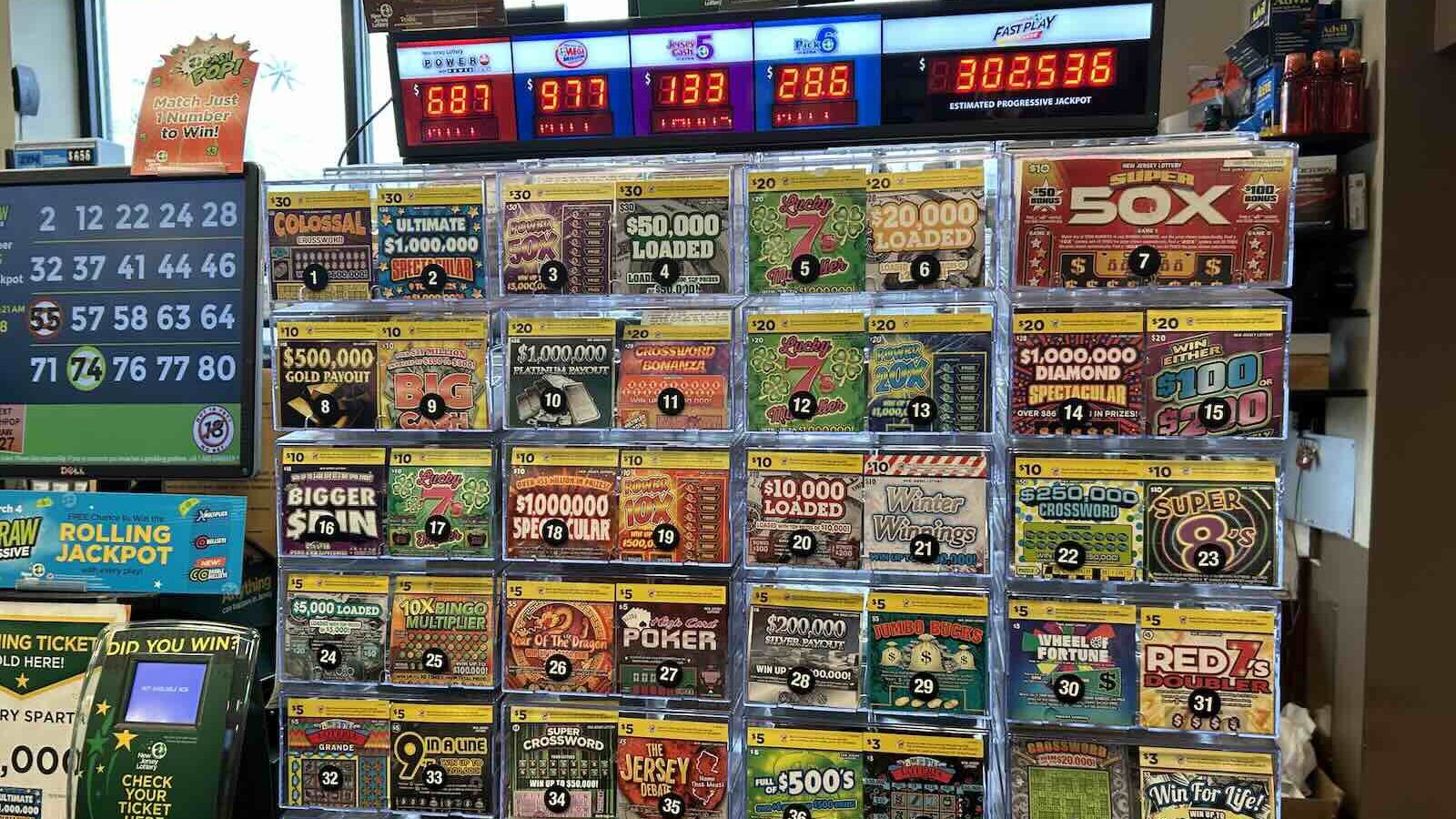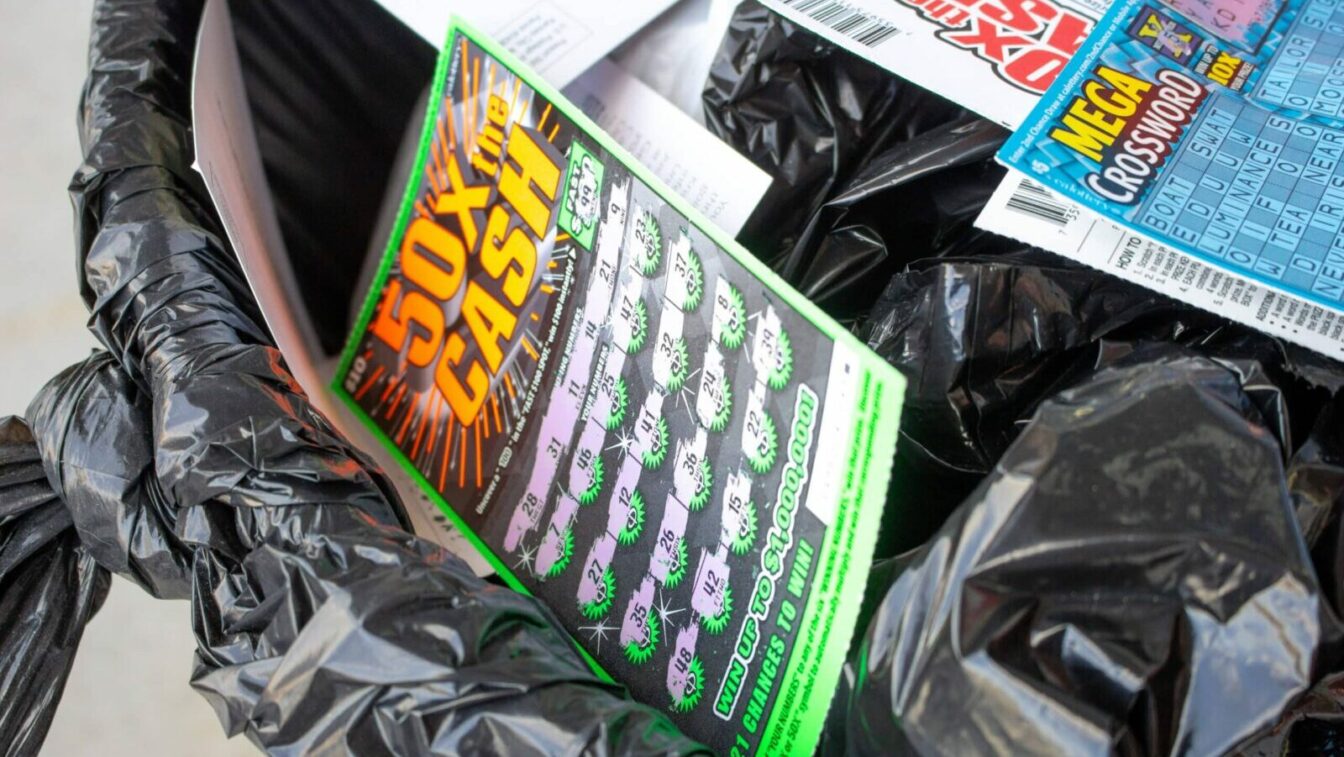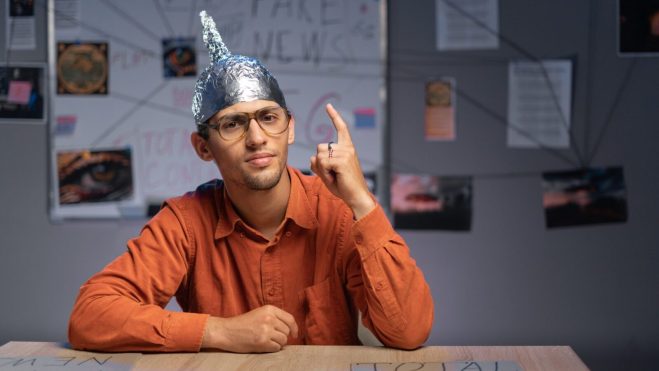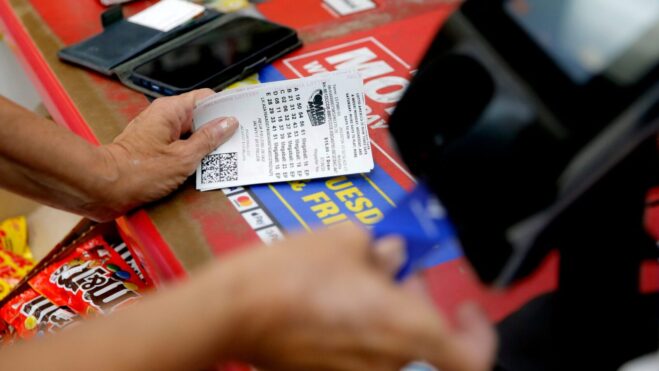Perceptions And Realities: 15 Perspectives On Whether The Lottery Is Gambling
The mission was to determine whether people generally view the lottery as a form of gambling, and to understand why some view it as something different, or less risky.
8 min

“I think if you ask most people, they’ll say — is a lottery a form of gambling? I think most people will say, well, maybe. I’m not sure. Or they’ll say, but it’s not as dangerous as slots, or it doesn’t convey the same sense of loss and potential risk as sports.”
Those are the words of professor of psychiatry and co-director of the UCLA Gambling Studies Program Timothy Fong, and also the genesis of this article attempting to identify the wide range of views that people have about the lottery.
The mission, which my collaborator Bill Dettloff and I may or may not have accomplished, was to determine whether people generally view the lottery as a form of gambling, and to understand why some, including those who do “play” the lottery, view it as a kind of Gambling Lite, as something short of blackjack, slots, or sports betting.
The respondents include a total 15 people from academia to my mother-in-law to bona fide industry folks to the clerk at the counter at a nearby smoke shop. The issue is as complex as you wish to make it, but possibly more fraught with caveats than you’re imagining. Among the caveats: Which lottery game are we talking about? There are obviously different types — draw vs. scratcher the most obvious distinction — but unless clarification of game kind was requested, we left that open-ended to let the persons define in their own minds and answer accordingly.
I am not a researcher and this was decidedly not a scientific undertaking. This lack of peer review, however, afforded the creative liberty to shift the scope of the questions throughout the exercise. We started out asking for very quick responses to a basic question (“Do you view the lottery as gambling?”), but as things evolved, we sought more expanded viewpoints in hopes of adding some context and giving everyone, myself included, some closure and a finer point.
Quick hitters: Is the lottery a form of gambling?
Glenn Dowd (musician): “Technically, it is gambling. No way around that — you’re spending your own money on a game of chance with the hope of winning more than you spent, which rarely happens. Is it as dangerous as other forms of gambling? For most people, no — but it can still be abused by addicts.”
James McLoughlin (founder, App Assassins): “Of course playing the lottery is gambling. You’re putting down cash in the hopes of winning more cash. With no edge. To me, that’s gambling.”
Tom Townsend (retired postal worker): “Playing the lottery is gambling. You’re betting money that your numbers will come out and you’ll win money.”
Drawing distinctions
Steve Ruddock (journalist and analyst, writer of gaming newsletter Straight to the Point): “The lottery is 100 percent gambling, full stop. That said (there is always a caveat), because of the small cost to play, many people don’t think of it as gambling. It’s more of a small daily/weekly expense, like purchasing your morning coffee or even along the lines of purchasing raffle tickets at a local fundraiser. The only difference is that you have an infinitesimal chance of becoming a multi-millionaire from the lottery.”
Mary Fairless (retired HR agent and the author’s mother-in-law): “My opinion is if you play the lottery daily or weekly and spend more than $20 a shot, it’s gambling. For me, I play flatly maybe one or two times a month and no more than $3 to $6, so I would not consider it gambling. Like an alcoholic — if there’s daily drinking, you’re an alcoholic, but drink here and there for social reasons, you’re not.”
Paul Williams (retired general contractor): “I don’t think of the lottery as gambling, because you mostly always lose. It’s less of a game. The odds aren’t ever in your favor. More like ‘no action!’”
Anonymous clerk at northern New Jersey smoke shop and lottery ticket retailer: “I mean, it is gambling. It’s the lottery. But it depends on the person and how much. Some people just play here and there, some do get addicted.”
Fintan Costello (co-host of The Gambling Files podcast): “The lottery is gambling with amazing PR. The huge odds and charity donations create a safe sense of plausible deniability and political air cover, but it’s the exact same as sports or casino betting. The gambling industry could learn a lot from lotteries.”
Let’s ask the academics
Brett Abarbanel, Ph.D. (associate professor/executive director at UNLV’s International Gaming Institute): “Yes, playing the lottery is gambling. You’re risking something of value, which is the amount you spend on the ticket, for a potential prize outcome. The outcome is uncertain, since you don’t know if you’ll win or lose until the game happens: Ticket is scratched, the draw ends, the VLT game completes, and so forth.”
John T. Holden (associate professor at Oklahoma State University): “We traditionally define gambling as containing three elements: a prize; consideration; and some degree of chance. I think the lottery satisfies all three elements. While each state individually decides how much chance is necessary for an activity to be gambling, a pure lottery would satisfy this definition in every state that I am aware of.”
Thoughts from industry insiders
Andrew Walter (director, legal & business affairs at Connecticut Lottery Corporation): “Yes, no question that playing the lottery is a form of gambling. I mean, that could be the end of the answer there. There are nuances between the forms of gambling. Certainly casino gambling is different. Up until three years ago in Connecticut, you had to drive down to the casinos in a remote part of the state to go do that activity, whereas lottery has this footprint of thousands of retail partners throughout the state, just like every other lottery. So, we’re ubiquitous in that sense that we’re everywhere.
“Lottery is a different product entirely, and even with our traditional lottery portfolio, just like every other lottery, we do try to have something for everybody. So we have $1 tickets where the top prize is maybe $1,000 or $500. And obviously everybody knows about Powerball or Mega Millions where $2 can win you over a billion dollars once or twice a year. So like any other business, we try to have a portfolio of products that speaks to everybody — but that’s no different than the casinos either, where you can play penny slots and then they have different products that I don’t even know about for their high rollers. But it’s all gambling.”
Brendan Bussmann (managing partner, B Global): “Lotteries, like casinos and sports betting, are mainstream forms of gaming entertainment that continue to provide states with tax revenue for schools, the environment, healthcare, and other key government services. Whether you are a Powerball or Mega Millions player, a scratch ticket player, or even an iLottery player, they in some cases appeal to a different customer than casino gaming or sports betting. Additionally, the type of game may also appeal to the consumer that has some like adjacencies.”
Adam Small (co-founder, Third Planet Affiliates): “Yes, of course it’s gambling. You are risking money in hopes of getting more money back. It is similar in some ways to other forms, but different in others. But it’s certainly gambling. How lottery compares to other forms of gambling, like casino gaming, is kind of a complicated question, but point one is that I don’t really think it has broader social acceptance. I think it’s politically easier to create most places because of who gets to make the money. I think [lottery’s] also politically easier [than casinos] in a lot of places because it doesn’t create a physical location and the various negatives that come with that, even though there are obviously also positives.”
The problem gambling perspective
Brianne Doura-Schawohl (founder and CEO Doura-Schawohl Consulting LLC): “Given the deep historical roots and significance that the lottery has played in our nation, I believe the answer to your question ‘Is the lottery gambling?’ will vary widely based on the generation of the individual that you ask. My personal view: Of course the lottery is gambling. The lottery, just like a slot machine, roulette, or sports betting involves an individual risking something of value (in this case money) for a chance to win something of value.
“The truth is, lottery play may seem innocent enough, or a fun way to ‘support a good cause’; as most lotteries fund important state initiatives, educational opportunities, wildlife conservation, clean water — but you can become addicted and struggle with lottery play just like all other forms of gambling. When we consider the science of gambling addiction, the perception that lottery play might be innocent and not gambling, combined with the low age of entry for participation (18) and the fact that the majority of lottery players remain low income and are racial minorities (two groups at greater risk for developing a gambling problem) it should be no surprise that many individuals that present for gambling addiction treatment or attend 12 step meetings will cite lottery as the primary entry to their gambling habits and problems.
“I believe the lottery is arguably the most pervasive and acceptable gambling form within our culture, thus, campaigns such as the ‘Holiday lottery campaign: lottery tickets aren’t for kids’ is vitally important. We need to continue to educate the public that gambling comes with risks and the younger an individual engages with gambling the more predisposed they could be in developing a problem later on. It may be government-sanctioned, but truthfully, lottery gambling carries all the same risks, if not more, as the other forms of regulated gambling we have across the nation.”
Let’s tie it all together
Matt Osgood (lottery consultant and industry veteran): “Yes, while lotteries fall under the umbrella of gambling activities, they carve out a unique space within the category, similar to how fast-food falls under the umbrella of restaurants.
“For lotteries to thrive, they must appeal to a broad audience, attracting players who might not otherwise engage in gambling for moral or religious reasons. This necessitates clear differentiation from other gambling verticals. Lotteries typically position themselves as benefiting good causes beyond just generating profits. This commitment to social good carves out a unique space for lotteries within the broader gambling landscape, separating them from other verticals that are seen as purely profit-driven. This association with worthy causes helps lotteries maintain a positive public image and broaden their appeal.
“Over time, this differentiation also often manifested in the very places where lottery tickets are sold alongside other fast-moving everyday consumer goods. In many jurisdictions, newsagents, mom-and-pop stores, and supermarkets become commonplace lottery outlets, contrasting with the age-gated casinos, bingo halls, or bookies for other forms of betting. This gives the lottery category the advantage of generating social proof, i.e. ‘it is something for people like me,’ which over time enhances its broader social acceptance.
“Furthermore, this distinction is often reflected in the terminology, you make a bet or wager when you engage with casino or sports betting, but you ‘play the lottery.’ The very language used reinforces the perception of lotteries as a distinct experience from other forms of gambling. So much so, that when asked to consider it, many lottery-only players do not equate buying a ticket with gambling and nor would they consider themselves as someone who gambles.
“Lottery’s distinct position within gambling also stems from the way you play and win. Selecting numbered balls for a random, mostly infrequent, drawing, traditionally televised for maximum transparency, emphasizes pure luck as the driving force. Unlike casino games and sports betting that require some skill or knowledge, lotteries offer adults an equal chance to participate, fostering a sense of egalitarianism and building consumer trust — the bedrock of any successful lottery. This accessibility and emphasis on luck are the USP (unique selling proposition) of the lottery category. Combined, this simplicity and fairness resonate with the universal human desire to dream big, making lottery both mass and unthreatening.
“In contrast, casino games and sports betting evoke perceptions of skill and knowledge playing a role alongside luck and circumstance. Choosing a winning lottery ticket feels more akin to a lucky twist of fate, while navigating a casino or placing a sports bet can be seen as requiring some level of expertise. This perceived difference in skill level contributes to the perception of lotteries as a ‘light-hearted flutter’ and not a bet.”






